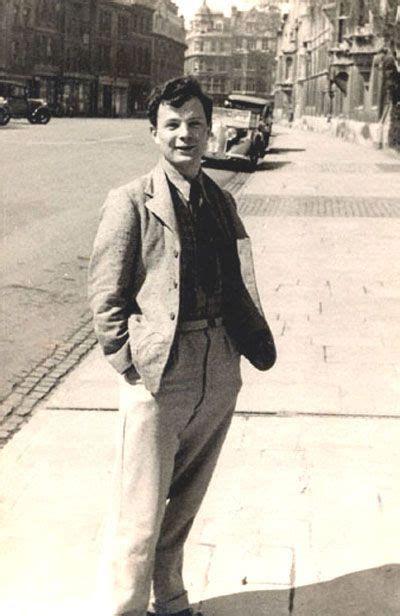A Quote by Norman O. Brown
Utopian speculations ... must come back into fashion. They are a way of affirming faith in the possibility of solving problems that seem at the moment insoluble. Today even the survival of humanity is a utopian hope.
Related Quotes
We cannot create blueprint for future society, but it is good to think about that. It is good to have in mind a goal. It is constructive, it is helpful, it is healthy, to think about what future society might be like, because then it guides you somewhat what you are doing today, but only so long as this discussions about future society don't become obstacles to working towards this future society. Otherwise you can spend discussing this utopian possibility versus that utopian possibility, and in the mean time you are not acting in a way that would bring you closer to that.
On the conservative side, today's libertarianism is far more dogmatic and devoid of qualification than the liberalism of Adam Smith or J.S. Mill. Like Marxism, libertarianism is a utopian worldview based on an economic-determinist vision of history. Unlike Marxism, libertarianism is highly specific in its predictions about the transition to the utopian world order, rendering it vulnerable to fact.
The Oneida Perfectionists, along with some of the others, believed that feminism, and abolitionism, and other causes that they pursued in their own way without participating with other people outside of their communities, were all piecemeal reforms. That's what makes a utopian a utopian, this idea that they were going to create a whole new world from scratch.
When we generate utopian visions and hope to make them happen soon – when we elect Barack Obama and expect all our problems to be solved, and solved quickly, by his presidency – the outcome is both predictable and tragic. That is not the way to engage social change in a democracy. And it is not the way to help democracy itself survive and thrive. Democracy is a non-stop experiment. Each generation must help sustain it, which means being in it day-by-day for the long haul.
It may seem like sort of a waste of time to play 'World of Warcraft' with your son. But you're actually interacting with each other. You're solving problems. They may seem like simple problems, but you're solving them. You're posed with challenges that you have to overcome. You're on a quest to gain certain capabilities.
Utopian fiction is really boring. I had to read a lot of it, and it's not that much fun. But they're fascinating to me as historical documents. Cabet [Icaria's founder and author of the utopian novel, Travels in Icaria], is writing in the 1830s, and his idea of the perfect society reveals a lot about his time. But his book is uniquely bad.
It is singular to look round upon a country where the dreams of sages, smiled at as utopian, seem distinctly realized, a people voluntarily submitting to laws of their own imposing, with arms in their hands respecting the voice of a government which their breath created and which their breath could in a moment destroy!
Political philosophy is realistically utopian when it extends what are ordinarily thought to be the limits of practicable political possibility and, in so doing, reconciles us to our political and social condition. Our hope for the future of our society rests on the belief that the social world allows a reasonably just Society of Peoples.
Let us be today's Christians. Let us not take fright at the boldness of today's church. With Christ's light let us illuminate even the most hideous caverns of the human person: torture, jail, plunder, want, chronic illness. The oppressed must be saved, not with a revolutionary salvation, in mere human fashion, but with the holy revolution of the Son of Man, who dies on the cross to cleanse God's image, which is soiled in today's humanity, a humanity so enslaved, so selfish, so sinful.








































